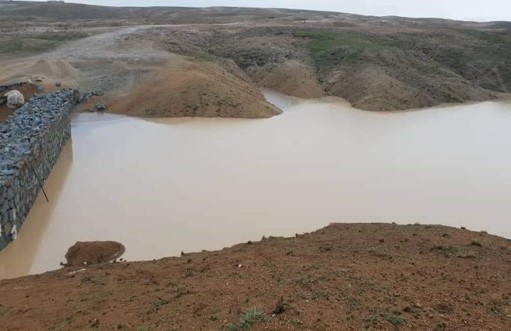
ECOFA recognizes the critical need for sustainable water use to ensure environmental health and long-term productivity. The organization promotes water-efficient practices in Malak Abdullah Jan Kochi Qala village in the central part of Ghazni city moreover, in Paktya, Paktyka and Nanagarhar provinces. ECOFA constructed 300 check dams and ponds from local material by villagers in mentioned provinces.
Drip Irrigation: Targeted water delivery directly to plant roots to minimize waste.
Irrigation Scheduling: Optimizing watering times based on crop needs and climatic conditions.
Water Capture and Storage: Constructing systems to collect and store water for future use.
Dry Farming Techniques: Adapting agricultural methods for arid regions to conserve water.
Drought-Resistant Crops: Encouraging the cultivation of crop varieties resilient to water scarcity.
Soil Conservation Practices: Implementing rotational grazing, conservation tillage, and using compost or mulch to retain soil moisture.
Sustainable Farming: Promoting organic farming and cover crops to enhance soil health and reduce environmental impact.
These strategies contribute to more sustainable agriculture and support rural livelihoods.
Building Infrastructure for Agricultural Growth in Remote Areas
ECOFA prioritizes the construction of essential water infrastructure to support agriculture in underserved regions. Key initiatives include:
Check Dams and Reservoirs: Structures to capture and store surface water for irrigation while preventing soil erosion.
Groundwater Recharge: Utilizing stored surface water to replenish groundwater levels.
Irrigation Support: Ensuring a reliable water supply for agriculture to improve productivity in remote and drought-prone areas.
By combining modern techniques and critical infrastructure development, ECOFA fosters sustainable agricultural practices and strengthens food security in Afghanistan.